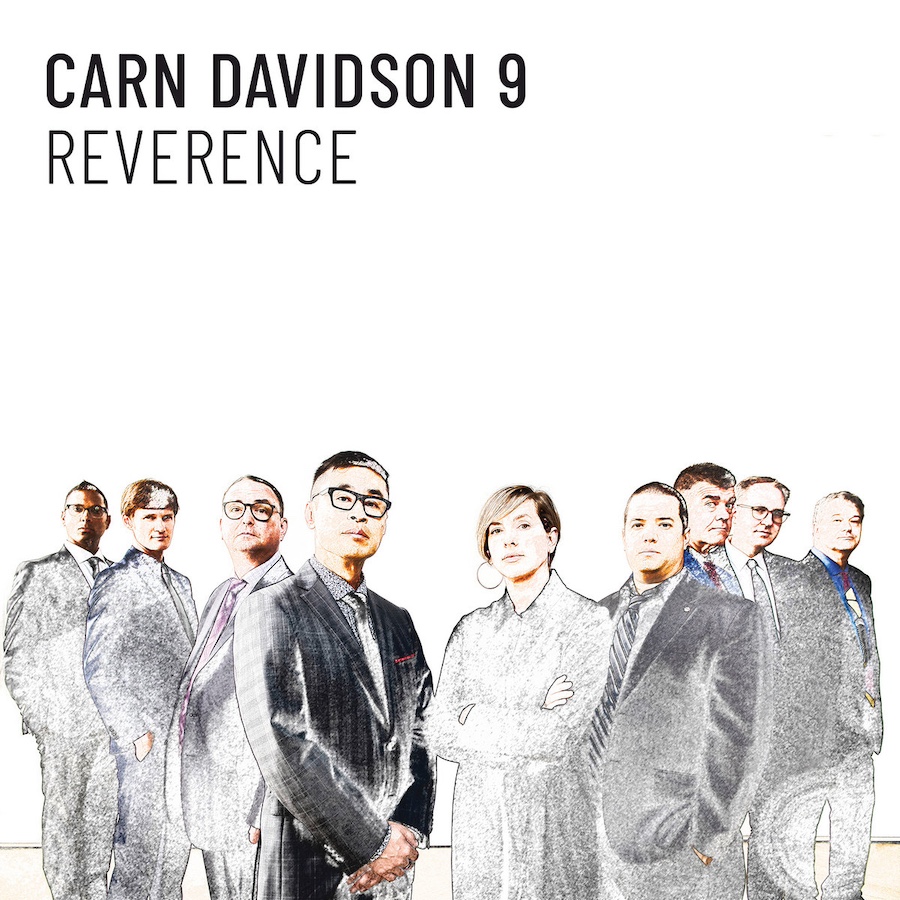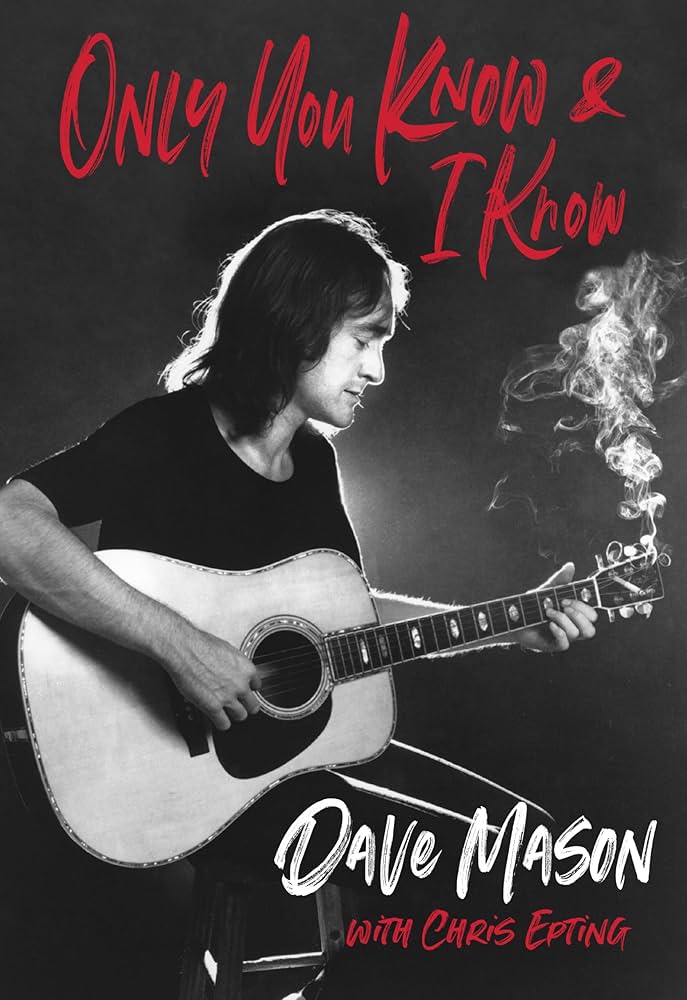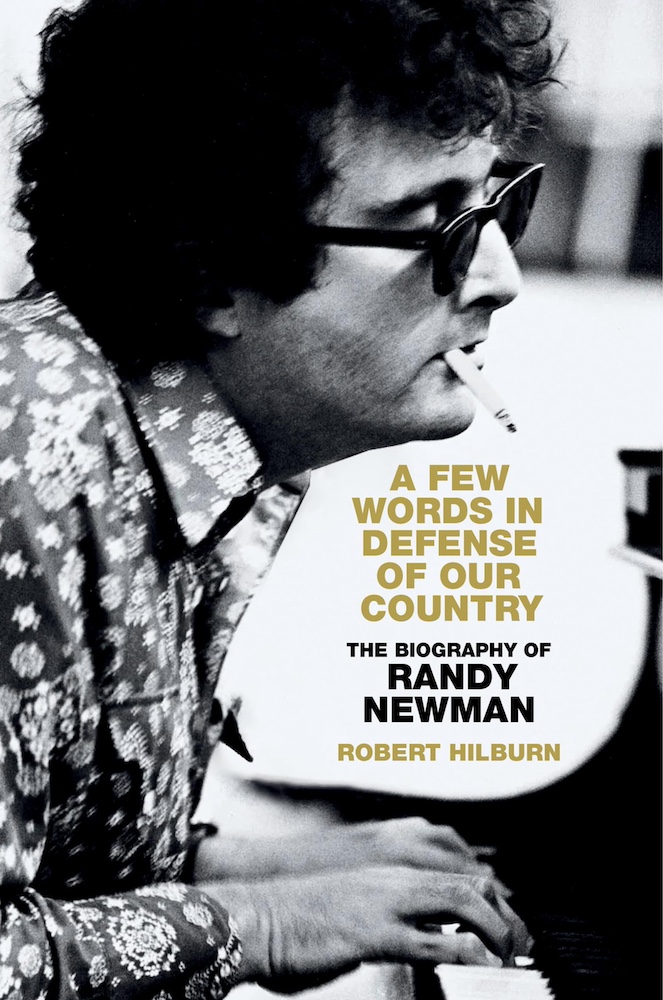
Fourteen years ago, Canadian composers Tara Davidson (alto sax/flute) and William Carn (trombone) formed Carn Davidson 9 as an outlet for their compositions. Their nonet has prospered over the years as this full house of seven wind instruments with bass and drums on everything from swing to samba turned into a winning hand. Their self-released, self-produced fourth album, Reverence, is so good, you may not want to listen to anything else for a time. Each composer’s suite is filled with the colors of tenor sax, clarinet, alto sax (2), flute, baritone sax, bass clarinet, trumpet (2), trombone, bass trombone, and drums (by one of the most creative drummers on the Canadian scene, Ernesto Cervini), plus extra percussion that percolates on high boil. The two suites complement each other to the sky.

Every album by New Yorker Eric Bibb, 73, is cause for celebration. Ridin’ was one of the best albums of last year, and, in fact, his Blues People (2014), Migration Blues (2017), and Dear America (2021) were all amongst the best of those years in any genre. The dude’s never pulled any punches when writing about his country’s ills; maybe that’s because Pete Seeger and Paul Robeson were family friends. In The Real World (Stony Plain/Repute) is more mellow, more relaxed, less angry, and more folk than blues. His warm expressive voice is an old friend who comes to visit with the release of each album. The accent is on his subtle-but-moving guitar. He wrote or co-wrote all 15 songs, recorded ‘em at Peter Gabriel’s Real World Studios in England with Glen Scott behind the board, and the result is an understated gem, beautiful in its utter simplicity. Lyrically profound, as always, I love “Dear Mavis” best, a love letter to the legendary Mavis Staples.

Dave Mason swears he never wanted to write a memoir, but was forced into it by his wife. She was right. Only You Know & I Know (DTM Entertainment), by Mason with Chris Epting, named after his first hit, is his amazing story. He co-founded Traffic with Steve Winwood. Joe Cocker popularized his “Feelin’ Alright.” And it seems like just about everybody had him in the studio including George Harrison (“All Things Must Pass”), Paul McCartney (“Listen To What The Man Said”), the Rolling Stones (“Street Fighting Man”), and Jimi Hendrix “(All Along The Watchtower”). His Alone Together album ignited one of the most successful of all 1970s careers. It’s all in here, including his obligatory Rock Star Cocaine Addiction.

Dick Earl’s family band, Electric Witness, takes a more polished studio approach than their rather raw 2020 eponymous debut. Honing their chops in Las Vegas (they’re actually from Utah, just north), the result is Get Up Off The Ground (ABP Music Distro). It has keyboards, sax, trumpet, trombone, African Thumb Piano, South American lute, and percussion – all in support of Earl’s vocals, guitar, banjo, harmonica, and 11 compositions. It was co-produced by wife/vocalist Alice and son/bassist Isaac, with Isaac’s propulsive sibling Mari on drums. They call their sound “High Desert Blues.”

A Few Words In Defense Of Our Country: The Biography Of Randy Newman (Hachette Books), by longtime Los Angeles Times music critic Robert Hilburn, is in the conversation for best biography of 2024. Newman, 81, may be thought of as one of a handful of Greatest Living American Songwriters (along with Bob Dylan and Paul Simon, who both sing Newman’s praises), but the thing that might make him No. 1 is his penchant for writing songs from the point of view of the “unreliable narrator,” a literary device that the two aforementioned composers never dared approach. “Rednecks” is from the point of view of a racist, complete with the N-word, but it isn’t him, it’s from the “no-necked oilmen from Texas/good ol’ boys from Tennessee/college men from LSU/went in dumb, come out dumb too.” “Davy The Fat Boy” is from the despicable man who promises to take care of a dying couple’s child only to turn him into a carnival sideshow attraction for his financial gain. “In Germany Before The War” is from a serial child killer who sits by the shore watching a little girl who “has lost her way.” By the last line of the song, “she lies very still.” The six-footer’s biggest hit, “Short People,” (“short people got no reason to live”) is a thinly-veiled swipe at bigotry of all kinds. So with all the kids who have memorized his lyrics to Toy Story’s “You’ve Got A Friend,” there are more discerning listeners who dig “It’s Money That I Love” (“they say that money can’t buy love in this world but it’ll get you a half-pound of cocaine and a 16-year old girl,”). Just remember, that’s not him, it’s his “unreliable narrator.” Plus, it’s worth noting Newman’s acerbic wit has yet to be diluted by time.



